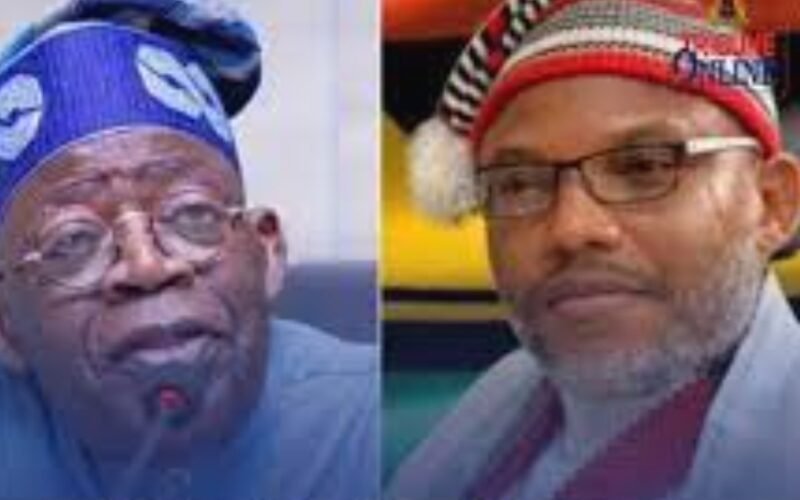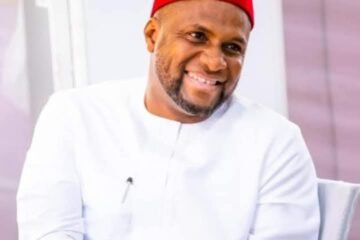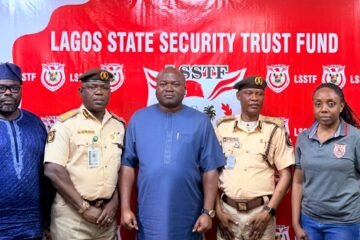MAZI NNAMDI KANU Vs TINIBU’s PRESIDENTIAL PARDON: Four Years in Detention and the Question of Justice
By Mandy Ezekiel
The leader of the Indigenous People of Biafra (IPOB), Mazi Nnamdi Kanu, has remained in detention for four years despite several court rulings ordering his unconditional release.
Kanu, who has been in the custody of the Department of State Services (DSS) since June 2021 following his re-arrest and extradition to Nigeria, continues to face charges bordering on treasonable felony. However, a series of court judgments, including one by the Supreme Court as well as the Appeal court in Abuja, had ordered his release, citing procedural violations in his extradition and trial.
While the courts have consistently ruled in favour of Kanu’s release, the federal government has yet to comply, maintaining that his case involves national security concerns.
The perceived apparent double standard in the government’s approach to justice has left many lovers of justice and defenders of truth both home and in diaspora in a state of wonderment. This is even as several known terrorists, bandits, and kidnappers—many of them responsible for the deaths of hundreds across the country—have been granted amnesty and reintegrated into society,
under the administration of President Bola Ahmed Tinubu. Yet, Mazi Nnamdi Kanu, whose principal demand has been a referendum for the people of her people, remains behind bars.
Critics have questioned the contrast between such measures and the continued detention of Kanu, whose major demand has been a referendum for the South-East region.
Veteran journalist and publisher of Ovation International, Dele Momodu, recently joined the conversation, asking why those who have taken up arms against the state are being pardoned while Kanu remains in custody. “Does it mean that terrorists and bandits deserve rehabilitation whereas Kanu doesn’t?” Momodu queried in a social media post.
Observers and civil rights advocates argue that the continued detention of the IPOB leader, despite judicial verdicts, raises concerns about political interference and selective application of justice. Some analysts believe Kanu’s case has gone beyond legal boundaries, taking on deeper political and ethnic dimensions.
In the South-East, opinions remain divided. While many groups and individuals have called for his release as a step toward national reconciliation, some Igbo political and traditional leaders have been accused of working against his freedom, citing fears that his release could reignite agitation and unrest in the region.
Kanu’s supporters, however, insist that his only offence has been advocating for a referendum, a democratic process recognised under international law. They argue that if the Igbo people had been accorded the same sense of inclusion and equality as other regions in the Nigerian federation, there would have been little need for secessionist campaigns.
As debates continue, Kanu’s prolonged detention remains one of the most contentious human rights and political issues in Nigeria today. Many observers see the situation as a test of the government’s commitment to the rule of law, justice, and national unity.
And I ask: why grant “presidential pardon” to known terrorists and discard an innocent man whose only crime is a passionate cry for the freedom of his people who have been battered and scattered by the Nigerian government for decades? I still wonder if the Igbo political profiteers could contend with the outcome of their calamities against Mazi Nnamdi Kanu.





